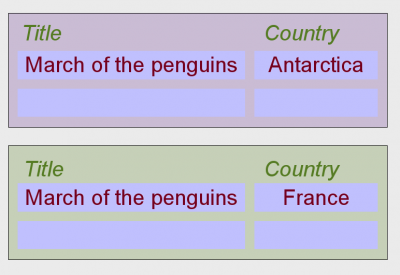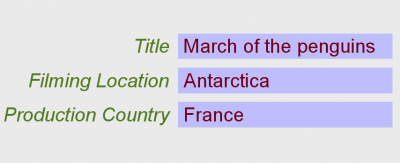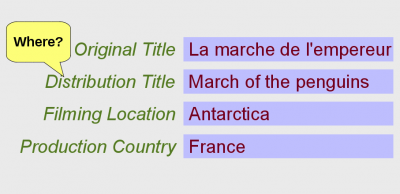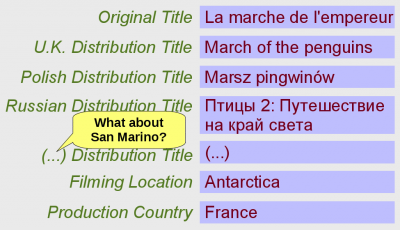Difference between revisions of "The case for reference models"
From filmstandards.org
| Line 78: | Line 78: | ||
|<span style="color:#808080"> • • • </span> | |<span style="color:#808080"> • • • </span> | ||
|- | |- | ||
| + | |} | ||
| + | |||
| + | ==Clarifying the things to talk about== | ||
| + | |||
| + | Metadata consists of statements about something. In this way, it is no different from ordinary discourse. Fruitful discourse requires a clear understanding of at least some basic concepts behind our words. | ||
| + | |||
| + | {| style="float: right; border: 1px solid #BBB; margin: .46em 0 0 .2em;" | ||
| + | |- | ||
| + | | valign="top" width="405px" |[[File:Porphyry.jpg|400px]]<br /> | ||
| + | <span style="font-size:8pt"> | ||
| + | </span> | ||
| + | |||
| + | | valign="top" width="405px" | | ||
| + | Metho. | ||
| + | |||
| + | And, indeed, modern information science '''does relate''' things back '''to universal categories'''. | ||
|} | |} | ||
Revision as of 08:27, 2 April 2011
From the TC 372 Workshop Compendium
Do we talk about the same thing?
Naming a data element may appear sufficient in order to give it a meaning. While this may be true for personal databases, it clearly isn't as soon as people from different backgrounds want to share the information.
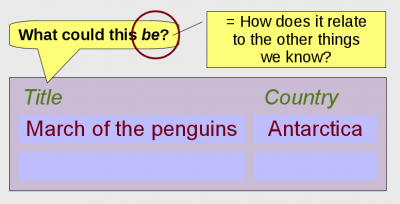
|
Asking what something is can easily lead us back to Adam and Eve (or to the beginning of the universe). And, indeed, modern information science does relate things back to universal categories. |
| • • • |
Clarifying the things to talk about
Metadata consists of statements about something. In this way, it is no different from ordinary discourse. Fruitful discourse requires a clear understanding of at least some basic concepts behind our words.
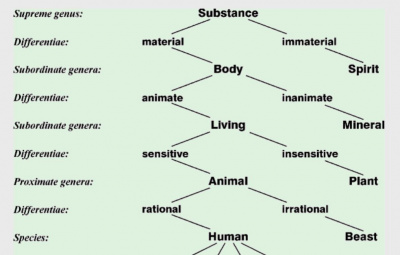
|
Metho. And, indeed, modern information science does relate things back to universal categories. |
